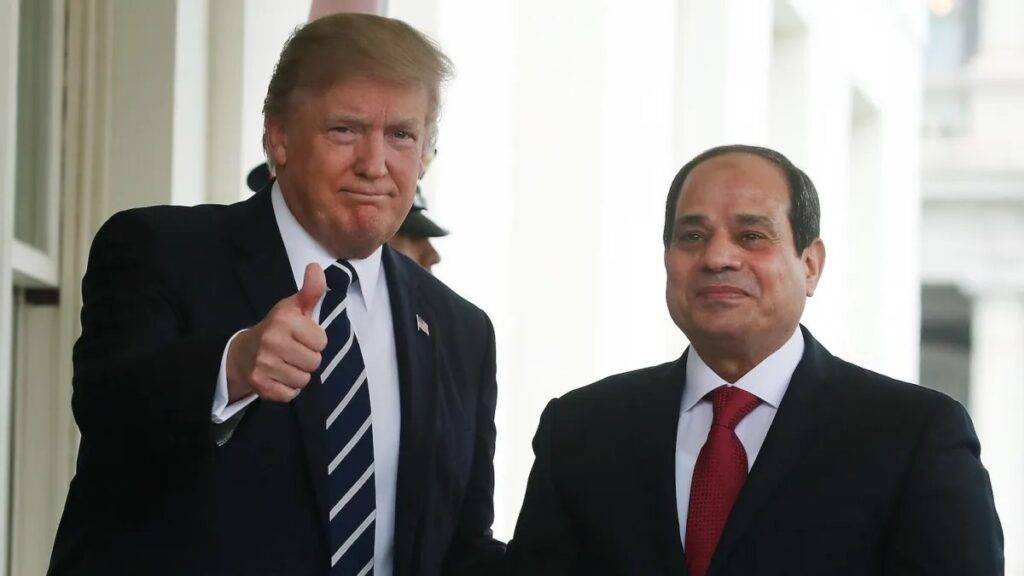In a fiery speech on Monday, Representative Ilhan Omar (D-MN) sharply criticized President Donald Trump’s recent decision to cut funding for the U.S. Agency for International Development (USAID), describing it as a troubling move toward authoritarianism. The remarks were delivered outside the USAID offices in Washington, D.C., where Omar expressed her concerns over what she perceives as a dangerous trend in the Trump administration’s handling of government programs.

Trump’s decision to reduce the USAID budget was part of his broader efforts to scale back government spending and eliminate what he has called “excessive” foreign aid. His administration has argued that the cuts are necessary to rein in the U.S. deficit and ensure taxpayer dollars are used more efficiently. However, Omar and other critics have raised alarms about the long-term consequences of these reductions, which they argue could have severe implications for global humanitarian efforts and U.S. foreign policy.
Omar’s comments came at a time of increasing political polarization in the United States, with many Democratic lawmakers questioning the president’s approach to governance. Omar, a member of the progressive “Squad” in Congress, accused Trump of undermining critical foreign aid programs that provide essential support to millions of people worldwide. She characterized the cuts as an early indicator of a broader trend toward authoritarianism, warning that reducing government spending in this way could pave the way for even more dangerous moves against democratic institutions.
“Cutting essential foreign aid programs is not just about saving money; it’s about a power grab,” Omar said during her speech. “The president’s actions are a clear attempt to centralize control and weaken the very institutions that protect the vulnerable both here and abroad. This is a sad day for America and for the world.”
Omar went on to describe how cuts to USAID would disproportionately affect countries struggling with crises such as poverty, disease, and natural disasters. She emphasized the role of U.S. foreign aid in providing disaster relief, combating infectious diseases, and supporting democratic institutions in developing nations. By reducing this funding, she argued, the Trump administration is putting lives at risk and damaging the U.S.’s reputation as a global leader in humanitarian efforts.
“The United States has always been a beacon of hope for those in need around the world,” Omar continued. “But these cuts to USAID are not just reckless; they’re a direct assault on our values as a nation. The president’s desire to consolidate power by slashing these programs is a dangerous and deeply troubling sign of what’s to come.”
Omar’s rhetoric about the potential rise of authoritarianism echoes concerns raised by other critics of Trump’s administration, including those who have pointed to his repeated attacks on the media, his efforts to undermine judicial independence, and his refusal to accept the results of the 2020 presidential election. However, Omar’s comments went beyond a critique of Trump’s foreign policy, framing the cuts as part of a broader, more insidious threat to American democracy itself.
The congresswoman also drew attention to the broader impact on domestic politics, accusing Trump of undermining essential government functions to serve his own political interests. She warned that cutting foreign aid could embolden authoritarian regimes abroad and foster an environment of global instability. “By undermining USAID, Trump is not only turning his back on global responsibility; he is empowering tyrants and undermining our own national security,” she asserted.
In contrast, President Trump has defended the budget cuts, arguing that American taxpayers should not be expected to fund international aid programs at the expense of domestic priorities. His administration has repeatedly emphasized the importance of reducing the federal deficit, and the proposed cuts to USAID are in line with his broader efforts to scale back government spending in areas he views as inefficient.
While critics like Omar have denounced the decision as a step toward authoritarianism, others see it as a necessary reform. Some Republicans have praised the move, suggesting that the U.S. should focus on its own issues before providing aid to other nations. The debate over foreign aid continues to be a point of contention in the American political landscape, with differing views on the country’s role in global affairs and how taxpayer money should be spent.
As the fallout from Trump’s decision to cut USAID funding continues, it is clear that the issue is far from resolved. Lawmakers on both sides of the aisle will likely continue to debate the merits and consequences of these cuts in the months to come, with the future of U.S. foreign aid and its global leadership in the balance.
For now, Representative Ilhan Omar’s impassioned remarks stand as a powerful reminder of the ideological divide that defines American politics in the age of Trump. Whether or not these cuts will lead to greater political instability, both domestically and internationally, remains to be seen. But for Omar and her supporters, the threat is clear: this is a moment that could have lasting consequences for the future of American democracy and its role on the world stage.